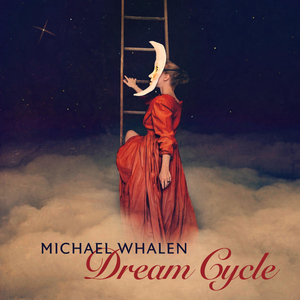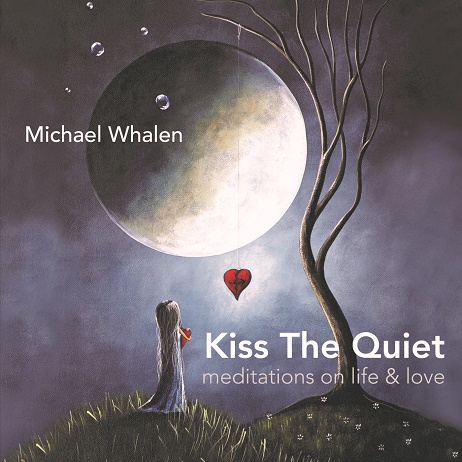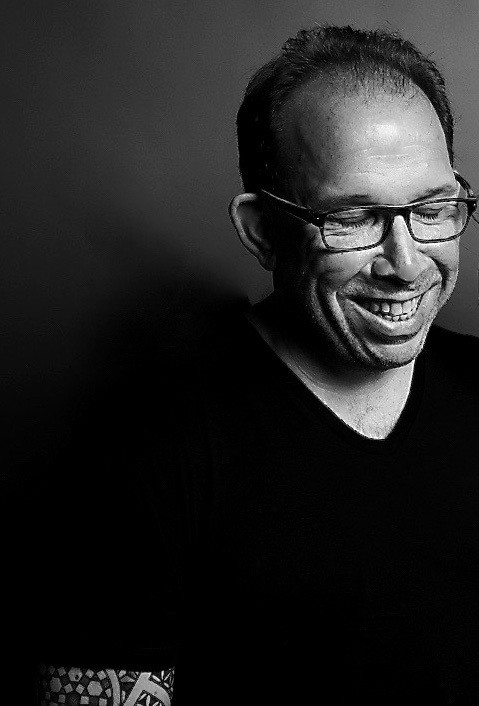Interview with Michael Whalen–an Artist Who Dares to Solve Problems with Music
Sometimes, I feel artists are the ‘reverse scientists‘. They do the same stuff but apparently in the opposite order. A scientist tries to explain an abstract idea in clearer terms to establish the governing laws of that idea, while an artist takes the whole concept to an abstract level and metamorphoses it into an art form. While the scientist looks to explain things to the masses in simpler terms, an artist leaves his work open to interpretations and receptions that may vary from person to person.
This is what you will have when you listen to Michael Whalen‘s music or get to know him as a musician–something to think about. He does not need an introduction as a very famous composer and artist, but what strikes you most is his approach to his work–solving problems through music; being vulnerable to create the best music; feeling gratitude because there are people who could understand what he tries to do–I mean that’s something really uncommon but sounds indispensable when you pursue quality of your passion.
We talked to Michael through an email interview:
Q1. You have worked in multiple genres and have touched almost all kinds of music and instruments. Why is piano so special?
Honestly, I don’t see myself as a “pianist”. Piano is simply a way of getting my melodies across to people. Piano has been a refuge for me for my whole life. Now, as an adult, it continues to be a creative oasis that is both very simple and very emotionally demanding. My music is so spare and so minimal that every single note counts. The space between notes counts. The kind of focus and discipline it takes to play that way is tough. Franky, it’s easy to play music with lots of notes and flourishes. Less truly is more… So, the piano is special because it offers me a way to be disciplined and focused and emotive and generous simultaneously. It’s a miracle that such an instrument exists…
Q2. You have created so much music over the years. What fuels your creativity even now?
I think that the quest to express oneself is never complete… There’s always another layer to strip away. There’s always another problem to be solved. I love solving problems and I need the outlet that music gives me.
Q3. How do you feel music helps you connect with yourself while your compose music?
I think the key for me is that I sit down to compose music without any answers at all. The process of creating music is a journey towards a discovery or a revelation that is never THE answer. It’s like life and music never resolve to that “ta da” moment. I love that because my music puts me on a journey. I am sometimes afraid of the emotional revelations that music can reveal–but that’s the BEST kind of music. Music that lifts someone up and creates space for the next discovery.
 Q4. You have seen the changes music has undergone in the age of technology. What’s your take on that?
Q4. You have seen the changes music has undergone in the age of technology. What’s your take on that?
Yes, technology has been a big part of the music making process. However, the introduction of streaming music and playlisting has changed how people listen and discover music entirely. The old processes of sales, promotion and even radio airplay are being subsumed by playlisting. What I am seeing is that the “old” artists that were famous for selling a lot of units are being replaced by artists who have music that can be easily playlisted and discovered. Playlisting has evened the score with regard to the “clout” that established artists used to have. I have been working for over a decade establishing myself as a successful streaming artist. I have a song that has over 33,000,000 streams on Spotify (“I Have Loved You for a Thousand Lifetimes”) and I am featured on over 14,000 playlists. Streaming is about finding the balance between the functionality of HOW music is used and the excitement that people have of hearing new music for the first time.
 Q5. Talk about your recent album–“Kiss the Quiet.” When did it feel that you were ready to compose it?
Q5. Talk about your recent album–“Kiss the Quiet.” When did it feel that you were ready to compose it?
I didn’t. It just happened. Literally. 2017 was a year of change and upheaval in my life. Lots of things happened to me personally, professionally and in my marriage. I sat down to figure out a few things. 9 days later, I had 10 songs written and I was starting to turn them into an album.
After doing a major recording like 2017’s “Dream Cycle”, I was not looking to create another album. In fact, I was avoiding it and trying to talk myself out of ever doing it again… “Kiss The Quiet” came along and gave me hope and it reminded me that at my lowest point that love, connection, forgiveness and even gratitude can be the engine that creates a new context and a new way of living life.
Q6. What do you seek to offer to the audience through your music?
I want my listeners and fans to know that I am offering them the ability to slow-down, relax and even to escape their lives for the length of a song or the album. People need to be reminded to stop. I need to be reminded to stop! (laughs) I am also offering to create an environment of love, safety, and calm. In the world, creating such a space is priceless. I am happy to be the conduit for my listeners.
Q7. Any message to our readers?
Every morning, I get up and I spend a minute and I create THREE things to be grateful for. Often, I choose: my children, my health, my wife, my parents and family, my ability to make music and so on. Gratitude is the most powerful tool for creating a happy and balanced life because when you are truly present to what you are grateful for you cannot think of anything else. Therefore, I am so grateful for my fans, friends, and listeners many of whom have come along with me since the release of my first Narada soundtrack “Sea Power” in 1993 to today. I do not take that level of loyalty and support for granted, I am so lucky that so many people have embraced the music and embraced me. I am blessed.


 Album Review—Inner Sanctum
Album Review—Inner Sanctum  Album review—Back To My Roots
Album review—Back To My Roots  Album Review—Days of Gypsy Nights
Album Review—Days of Gypsy Nights  Album Review—Open by Stephen Wallack
Album Review—Open by Stephen Wallack